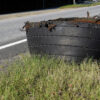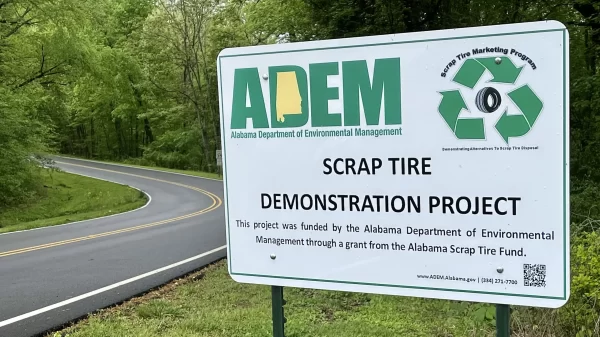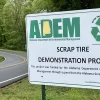Democratic gubernatorial candidates answered questions for environmentalist group Conservation Alabama.
“This year we go to the polls to choose those leaders who represent our values as Alabamians, from the Governor’s office to our state legislators,” Executive Director Tammy Herrington said. “Our mission here at Conservation Alabama is to ensure those leaders care about our water, land and air. To help you as voters learn their conservation priorities, we sent questionnaires to each of the candidates running for Governor, and received responses back from five of the candidates.”
The candidates were asked: Will you protect the Forever Wild Land Trust?
Sue Bell Cobb answered, “Absolutely. Access to protected public lands is essential for future generations to see, touch, and understand the value of our natural world so that they then can become advocates for its protection.”
Christopher Countryman answered, “Yes.”
Former state Representative James Fields answered, “Absolutely! The Trust’s effort to protect land, in cooperation with land owners, is a wise investment for all Alabamians. Rather than controversial government declarations or condemnations, Forever Wild is based upon the willingness of a private landowner to agree to sell or lease. No tax revenue is involved. As a District Director for the Alabama Wildlife Federation, I am and will remain committed to principles of conservation and wise use of our wildlife and natural resources and to ensure a high quality of life for future generations of Alabamians.”
Tuscaloosa Mayor Walt Maddox answered, “Yes, I fully support this important conservation program. I join the 84 percent of Alabama voters who first authorized Forever Wild in 1992, and the 75% who renewed it in 2012, in applauding the success of its mission. Assuming the Trust continues its remarkable record in preserving Alabama’s natural resources – something it has done for over a quarter century without raising taxes, without using tax revenues, and without the power of eminent domain – I would support another extension in 2032.”
Doug “New Blue” Smith answered, “Yes.”
Conservation Alabama asked: In order to protect our freshwater resources, do you support the completion of a comprehensive water plan for Alabama?
Cobb answered, “I think it borders on criminal that we do not currently have one in place. Not only does our lack of a comprehensive water management plan leave our precious water resources vulnerable to quantity and quality threats, but it leaves our state vulnerable in any legal proceedings concerning our water rights.”
Countryman answered, “Yes.”
Fields said, “Certainly! Alabama is the only state in the GA., FL. AL tri-state that does not have a Comprehensive Water Plan. We have thankfully begun water assessments. Gathering data about water, usage, flow, and quality can and must lead to such a plan. I support these efforts and will work to see a Plan come to fruition. A Comprehensive Water Plan will provide a structure for critical decisions that affect water quality and availability. Additionally, it can provide prospective industries with needed data as well as support Alabama’s position as we battle with Georgia and Florida for this most precious natural resource.”
Maddox said, “Yes. Alabama needs to join its neighboring states and adopt a comprehensive, sustainable water management plan. With more than 130,000 miles of rivers and streams, over a hundred public lakes, 20 major aquifers, 55 inches of annual rainfall, and 15 percent of all surface water in the lower 48 flowing through our state, Alabama is blessed with abundant water resources that shouldn’t be left to ad hoc management practices.”
Smith said, “Yes, and that is not all. I started the Alabama Development Office, and as the chief administrative assistant to the governor, wrote the executive order creating it, then wrote the legislation making it and the Department of Economic and Community Affairs permanent. The statutes creating these entities contained language that required comprehensive strategic management planning for every department in the state including a comprehensive water plan for Alabama that required input from the state geologist, the state labs, the inland docks, the state docks, the Conservation Department, state parks and I am sure others I cannot remember from 50 years ago. When Gov. Riley was elected in 2002, one of the first things he did was dissipate the Office of Comprehensive Strategic Management Planning in ADO then Bentley abolished ADO completely, and comprehensive planning ended with the exception that Bonnie Fuller filed a comprehensive plan of some sort for the Appalachian Commission until she retired. When I am governor I will bring back comprehensive planning as part of the former Planning, Programming and Budgeting System as a best management practice applicable to all functions of state government, including comprehensive water planning. Planning is also the key to federal funds for assisting with water resources and all other functions of state and local government. If used properly comprehensive planning can usher in the right kinds of block grants that allow the state to manage more efficiently rather than with chopped up pieces of grants-in-aid.”
Conservation Alabama asked: Will you support legislation that would increase Alabamians’ ability to choose solar energy for their homes and businesses?
Cobb answered, “Yes. I think it is wrong for our state to discourage individuals from participating in green energy production, and current regulations are hindering development, they are anti-competition, anti-free market, and stifle new industry development. I will use all of the influence of the governor’s office to discourage corporations from using their power and influence to stifle expansion of solar and other green energy production technologies.”
Countryman answered, “Yes.”
Fields said, “Yes! Alabama’s protection of monopolistic energy companies from innovation is backward-thinking at best. Alabamians’ average monthly electric bills rank 2nd highest in the nation. The free market ideology espoused by Alabama’s GOP is further tainted by its routine refusal to allow competition for any of its supporting industries. When people who have opportunities to invest in cleaner, and renewal energy sources reap rewards for themselves, others who join them, as well as the communities they may serve, energy companies will be forced to change or be left behind.”
Maddox answered, “Policies should be instituted that encourage the use of renewable energy sources. We should recognize that people who install solar panels on their homes are making a choice that benefits all of society, and therefore consideration should be given to incentives that encourage both utilities and homeowners to shift to solar power.”
Smith said, “All things being equal, yes. But I do not think we should subsidize solar, and I want to study further what may be regulatory impediments to a customer’s freedom to choose that have just come to light.”
Conservation Alabama asked: What do you think are the most important conservation issues in Alabama right now?
Cobb answered, “It’s been mentioned, but a critical first step is ensuring we have a comprehensive state water management plan. I believe that access to clean water is fundamental for healthy children and families, and Alabama’s incredibly abundant water resources are under assault. 31 counties have childhood lead toxicity on par with or greater than that of Flint, MI. We have communities from the Tennessee Valley to the Mobile Bay that are spewing raw sewage into our rivers and streams. We must address these issues and while communities are ultimately responsible the state has a critical role to play in addressing these environmental justice issues.”
Countryman answered, “Land and water.”
Rep. Fields said, “Alabama’s Department of Environmental Management is totally ineffective by design and intentional inaction of the legislature which has been supported by Republican administrations. It lacks funding as well as supporting statutory enforcement power. As federal regulations continue to be dismantled, I will propose additional funding and supporting legislation for ADEM including severe and substantial monetary penalties for violations, all of which would flow into ADEM resources. We must have and ADEM that truly works for the people.”
“We need a Comprehensive Water Plan,” Fields continued. “Everyone has a right to clean drinking water and, if we are to maintain the status of world’s greatest nation no one should have to walk any farther than their kitchen for it. Alabama is blessed with more waterways than many states. We must end the pollution of these resources from industrial discharge as well as agricultural run-off.”
“We must move forward with development and utilization of renewable energy,” Fields concluded. “Allowing Alabamians the opportunity to directly observe the advantages that these sources offer can foster a change in the cultural attitude toward conservation. This change in the public cultural attitude may be the most important issue of all.”
Maddox said, “We need to make sure that everyone in Alabama benefits from our state’s beauty and recreational opportunities, not just those who can afford to buy large tracts of land from which the public is excluded.”
Smith answered:
“Wow, let me count the ways:
1. Cleaner air by getting our old coal burning steam plants converted.
2. Refinancing ADEM so it can properly monitor.
3. Solving the riparian rights disputes with Georgia.
4. Settling oil spill issues on the coast.
5. Lyme disease, tick and mosquito control in our forests and out of doors so the public may enjoy them without fear again.
6. Re-opening our state parks.
7. Lobbying the Congress to re-establish the Rural Development Administration in the US Department of Agriculture so that Alabama may continue to get support for her rural volunteer fire fighters who serve as backup for forest fire fighters.8. Lobbying Congress to rebuild the Alabama Army National Guard from 12,000 personnel back to 22,000 so that among other things they can serve as emergency backup forest firefighters.
9. Soil erosion and fertilizer run-off.
10. Controlling the pine beetle in certain areas of the state.
11. While ADEM is usually thought of as controlling water quality in a conservation sense, I think we also have a big problem connected to water conservation in the water delivery systems provided by our state’s rural water pumps and pipes most of which are PVC and over 50 years old, many admitting contaminated ground water and sewage.”
For the full candidate interviews, go to Conservation Alabama’s website.





















































